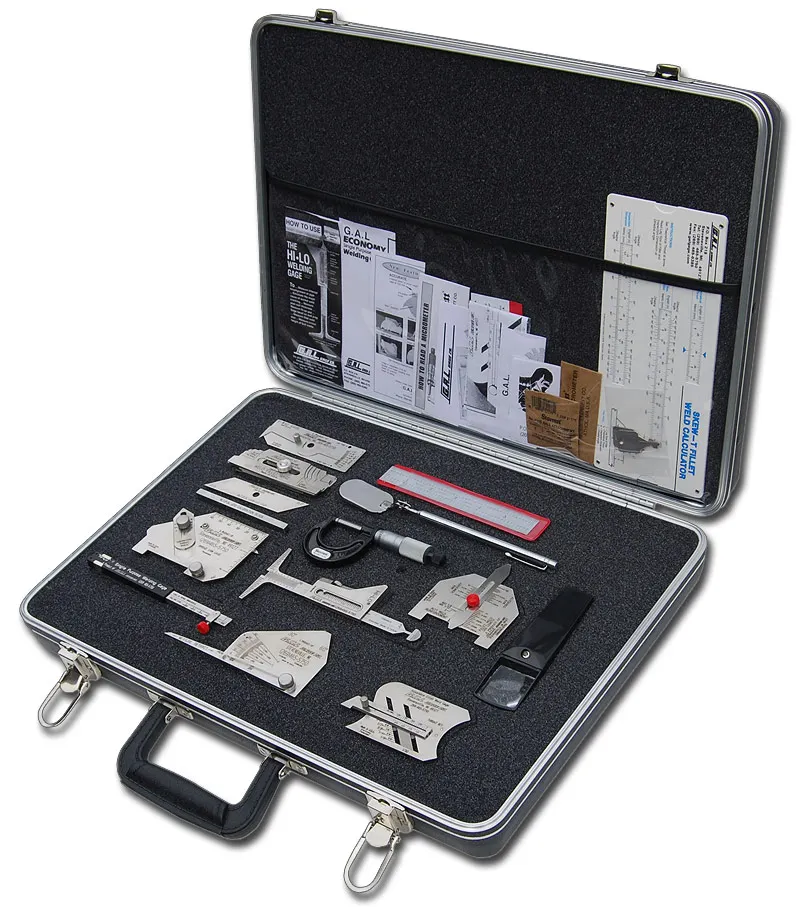How Welding Inspection Gilbert Arizona Can Improve Your Building and Production Processes
How Welding Inspection Gilbert Arizona Can Improve Your Building and Production Processes
Blog Article
The Effect of Strenuous Welding Evaluation on Industry Requirements: Promoting Security, Integrity, and Conformity Across Different Industries
The role of rigorous welding examination is significantly acknowledged as an important part in improving market criteria, where compliance, safety, and integrity take priority throughout varied sectors. What makeovers might we prepare for in welding techniques as the demand for top quality and safety increases?
Importance of Welding Evaluations
Identifying the important duty of welding evaluations in preserving quality and safety and security standards, market specialists focus on these analyses to make sure structural integrity. Welding evaluations offer as an important checkpoint in the manufacture process, determining issues that might endanger the sturdiness and safety and security of welded frameworks. By systematically evaluating welds, inspectors can identify problems such as insufficient penetration, porosity, and fractures, which might not be noticeable to the nude eye.
The significance of these inspections expands beyond mere compliance; they are important for securing lives and shielding investments. In essential sectors such as production, aerospace, and construction, a single malfunctioning weld can lead to catastrophic failures, resulting in both economic loss and human casualties. Therefore, implementing extensive examination procedures alleviates these risks and improves overall job integrity.
In addition, regular welding examinations foster a culture of quality throughout companies, encouraging welders to stick to finest methods and maintain high criteria in their work. This commitment to high quality not just enhances operational effectiveness yet additionally strengthens the online reputation of firms within their particular markets. Therefore, welding inspections are crucial in promoting security, dependability, and compliance throughout numerous industries.
Key Market Requirements and Rules
The framework of welding inspections is underpinned by a durable collection of industry criteria and laws that control methods across different markets. Trick organizations, such as the American Welding Culture (AWS) and the International Organization for Standardization (ISO), develop guidelines that ensure quality and security in welding procedures. As an example, AWS D1.1 outlines essential demands for welding steel structures, while ISO 3834 defines high quality demands for fusion welding.
Along with these specific requirements, industry regulations like the American National Requirement Institute (ANSI) and Occupational Security and Wellness Administration (OSHA) mandates even more boost compliance by setting security procedures and operational ideal practices. These laws are essential in industries such as manufacturing, aerospace, and building, where welding integrity is paramount.
Furthermore, sector-specific criteria, such as those from the American Society of Mechanical Designers (ASME) for pressure vessels, offer extra layers of scrutiny to make sure that welds satisfy rigorous safety and efficiency standards. Adherence to these criteria not just promotes regulatory compliance yet additionally promotes a society of high quality and integrity across the welding market, inevitably guarding public welfare and boosting functional efficiency.

Benefits of Conformity and Integrity
Consistently adhering to sector criteria and guidelines in welding examinations yields substantial advantages, enhancing overall reliability and efficiency. The leading benefit is the assurance of high quality in bonded joints, which straight adds to the safety of structures and equipment. Compliance with well-known requirements reduces the danger of failing and tragic events, thus protecting both human life and official source useful properties.
Furthermore, organizations that focus on rigorous welding inspections promote a culture of accountability and professionalism. This dedication not just bolsters the online reputation of the firm however additionally imparts confidence in clients and stakeholders regarding the integrity of products and services. Reputable welding procedures result in decreased costs related to rework, fixings, and potential lawful liabilities coming from poor workmanship.
Additionally, preserving conformity with sector requirements facilitates smoother governing interactions, as companies can conveniently demonstrate adherence to required methods (Welding Inspection Gilbert Arizona). This aggressive technique can result in advantageous partnerships and opportunities within the market, in addition go to this site to access to new markets
Difficulties in Welding Evaluation
Browsing the complexities of welding inspection offers a myriad of challenges that can prevent compliance with sector standards. The lack of standard training for assessors can result in diverse analyses of assessment requirements, which may endanger safety and integrity.
One more obstacle depends on the accessibility of advanced inspection tools - Welding Inspection Gilbert Arizona. While modern technologies such as ultrasonic testing and radiography can improve discovery abilities, their implementation may be restricted by price or availability, especially in smaller sized operations. This disparity can bring about a reliance on much less effective assessment methods, increasing the risk of undetected imperfections
Furthermore, the fast-paced nature of contemporary production commonly pressures inspectors to prioritize rate over thoroughness, possibly ignoring essential flaws. Finally, governing compliance can be daunting as a result of the advancing nature of market criteria, leaving companies having a hard time to maintain up with the most up to date demands. These difficulties require constant renovation in examination practices to ensure the honesty of welded structures across various sectors.
Future Trends in Welding Practices
Emerging modern technologies and developing approaches are established to change welding practices in the coming years. Improvements in automation, such as robot welding systems, are getting grip, enhancing accuracy and efficiency while decreasing human error. These systems will certainly not just speed up manufacturing but additionally promote constant quality assurance, addressing some of the obstacles dealt with in hands-on welding.
Furthermore, the combination of fabricated intelligence (AI) and artificial intelligence into welding procedures is poised to reinvent evaluation and surveillance. Real-time data analytics will make it possible for anticipating upkeep, permitting positive treatments that lower downtime and boost safety and security. Augmented truth (AR) and virtual truth (VIRTUAL REALITY) innovations are ending up being important in training welders, providing immersive experiences that enhance skill growth without the risks associated with standard techniques.
Sustainability is likewise an essential trend, as markets look for greener practices. The fostering of green products and techniques, together with energy-efficient machinery, will likely come to be typical. As sectors adapt to these modifications, the focus will certainly shift towards better conformity with safety and security and environmental guidelines, making sure read review that welding methods not only fulfill existing requirements however also lead the way for a more secure and more lasting future.

Conclusion
In final thought, rigorous welding evaluations significantly improve market requirements by making certain safety, dependability, and compliance throughout different markets. As industries proceed to focus on functional stability, the relevance of thorough assessments will just raise, inevitably profiting organizations and culture at huge.
The role of strenuous welding assessment is increasingly acknowledged as a vital element in improving sector requirements, where compliance, safety and security, and integrity take priority throughout diverse fields. Thus, welding evaluations are vital in advertising safety and security, integrity, and compliance throughout various sectors.
Secret organizations, such as the American Welding Culture (AWS) and the International Organization for Standardization (ISO), develop guidelines that ensure quality and safety and security in welding operations. AWS D1.1 lays out vital needs for welding steel structures, while ISO 3834 specifies quality needs for combination welding.
In conclusion, strenuous welding evaluations considerably enhance sector criteria by making sure safety, integrity, and conformity throughout numerous fields.
Report this page